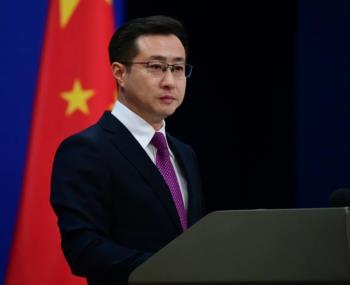Alwaght- The resignation of the British Prime Minister Liz Truss whose government lived for less than two months set the record for the shortest-serving British cabinet.
Britain has been in unending troubles for years and showed no signs of a salvation. For years, the country grappled with Brexit crisis and while it was yet to close its case with the EU, it fell into the coronavirus outbreak and the consequent economic troubles. As the country was struggling to beat the pandemic, blowbacks as byproducts of Ukraine war landed on the country's economy. Resignation of 4 prime ministers within just 6 years is another face of the crisis that is taking place while with the death of the Queen Elizabeth many of the Commonwealth states, which are ex-colonies, do not accept King Charles III as the head of state and seek to split from rule of the British monarchy— a rejection that further compounds the British home problems in the years to come.
Truss collapse: Economic setback or royal scheme?
One of the main factors in the early collapse of Truss was the withdrawal of some of the cabinet ministers and the withdrawal of support by some of the PM's party members. The reason for this gap in the Conservative Party was the Truss’s economic program, which took its design model from the neoliberal vision dominant in the era of the British PM Margaret Thatcher and the US President Reagan in the 1980s to support the free market and relied on tax cuts for the wealthy. The move shocked British financial markets amid an unprecedented inflation and a sharp drop in the national currency pound against the US dollar.
The turmoil began on September 23 when a package of tax cuts was unveiled by British Chancellor Kwasi Kwarteng, further devaluing the pound and raising government borrowing costs. As a result, many lenders withdrew mortgage offers, rattling the financial markets.
In the meantime, the government had to withdraw its economic program and move to the ones proposed by the rival Labor Party. Many polls have also shown public dissatisfaction with the economic policies of Truss government and that the Labor Party has gained a large lead over the Conservatives in the polls. In such a situation, the Conservatives sacrificed Truss so that they could hold power longer and not have to go to early elections.
Meanwhile, although the economy has been a key factor in the collapse of Truss, some views suggest a behind-the-scenes factor as leading in her failure: The Buckingham Palace. Upon Truss nomination for the post, her pro-republican political views in the past and support for the opponents of monarchy surfaced on the media outlets. Although in reaction to the news, she assured that she is loyal to the monarchy and that her views had changed, the fact is that a PM with this political background in the post at a time when the monarchy is in its weakest position in a century after the death of Queen Elizabeth was unpleasant to the royal family. In public belief, the monarchy is ceremonial in Britain, but in reality, the British royal family plays a role in many of the basic affairs of the country in alliance with the royalist political elite.
For the British, the monarchy is recent decades represented a missing linking ring to maintain the ex-colonies around the world under the Commonwealth formula which in the current conditions is moving fast to breakup. In total, about 150 million people live in the countries of the Commonwealth, the most populous of which are Britain, Canada, Australia, Papua New Guinea, and New Zealand. The King of England is also recognized as the head of state in a number of overseas territories outside the Commonwealth such as Gibraltar, the Falkland Islands, Bermuda and the Cayman Islands. However, the dream of independence and replacing the monarch with a president is brewing in some of these countries.
As part of the continuation of anti-monarchy approach of the Commonwealth states, on Wednesday, Quebec lawmakers who have won their parliamentary seats recently said they would not take the oath of allegiance to the King as the Canadian constitution requires them to.
In a poll conducted in Canada in April, for the first time in the history of this country, more than half of Canadian citizens, who are a majority of 71 percent in Quebec, announced that they want to end the relationship with the British royal family.
General elections?
While the Conservatives set October 28 as the date for inter-party election to name a replacement for Truss, with the joining of the Greens to the Labor Part, Liberal Democrat Party, and Scottish National Party, now a large number of the political parties are demanding dissolution of the parliament and holding early elections.
This shows that the crisis cycle shows no signs of a halt and further political disputes and bad economic conditions will claim Britain's future. Actually, continuing to battle home problems abyss after collapse of 4 governments within less than 6 years is more indicative of British ruling system's political and managing incompetence.



























